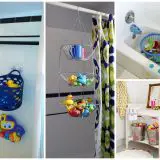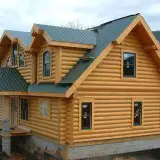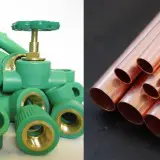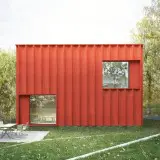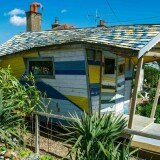Cork Insulation for the Home. Advantages and Disadvantages
100% natural, cork is considered to be one of the most environmental friendly raw materials used in constructions. Moreover, of all natural materials, cork has the best insulating properties, that also last a lifetime. Here is what cork insulation for the home involves and here are the benefits and disadvantages of choosing this type of material.
Cork is obtained from a certain type of oak, namely cork oaks, native of the Mediterranean region and north Africa. Cork is harvested from the bark when the oaks are at least 18 years old. In Portugal, the biggest cork producer in the world, these oaks are protected and the harvest has been done manually for more than 100 years now.
After the harvest, the bark regenerates and in 9 years time it can be harvested again. Cork oak trees can live up to 200 years.
Expanded cork tiles used for insulation are obtained from cork granules cast into metallic molds and exposed at high temperature steam. A a natural adhesive is produced binding the granules into a tile. Cork tiles come into different sizes and consistency degrees.
Cork insulation for the home. Applications
Cork is a high-performance solution for thermal, phonic and anti-vibration insulation, suitable for exterior, interior and double-walls, for concrete, roof and heated floors.
This is where cork insulation is most appropriate:
- hip roofs with rigid-insulated concrete plaques, flat conical roofs, traditional flat roofs, green roofs, hip roofs with membrane, corrugated roofing
- mortar and concrete walls discontinuity, steel framed and concrete walls discontinuity, wall and blanket discontinuity
- insulated steel framed walls, steel-coated insulated concrete walls, full insulated double-wall, both side insulated interior walls, partial insulated double-walls.
- glass panel walls, fold insulation
- vibration control in heavy gear
- pipes insulation
- joints expansion
- molds insulation
- electrical floor-heating, traditional floor-heating, girder-floor filling, floating cast-mosaic floor, floating wooden floor
- ventilated facades, thermal and phonic exterior wall insulation
Cork insulation for the home. Benefits
- 100% ecological
- adequate for all mediums and climates
- good phonic and thermal insulator
- protects against moisture and mold forming
- wall sweat protector
- fire-retardant
- resistant, it maintains its shape under heavy gear
- anti-static material (anti-dust and smell)
- everlasting (lifetime use)
- it looks good, so it can be directly applied on the wall and left uncovered
Cork insulation for the home. Disadvantages
The costs for cork insulation may be a disadvantage. Compared to other ways of insulating, it’s pretty expensive. Of course, this depends on the producer and the thickness and density of the material. For example, one square meter expanded cork, 1.9 inches, often costs more than 24 dollars. To this, add the costs of the glue and the labor.
